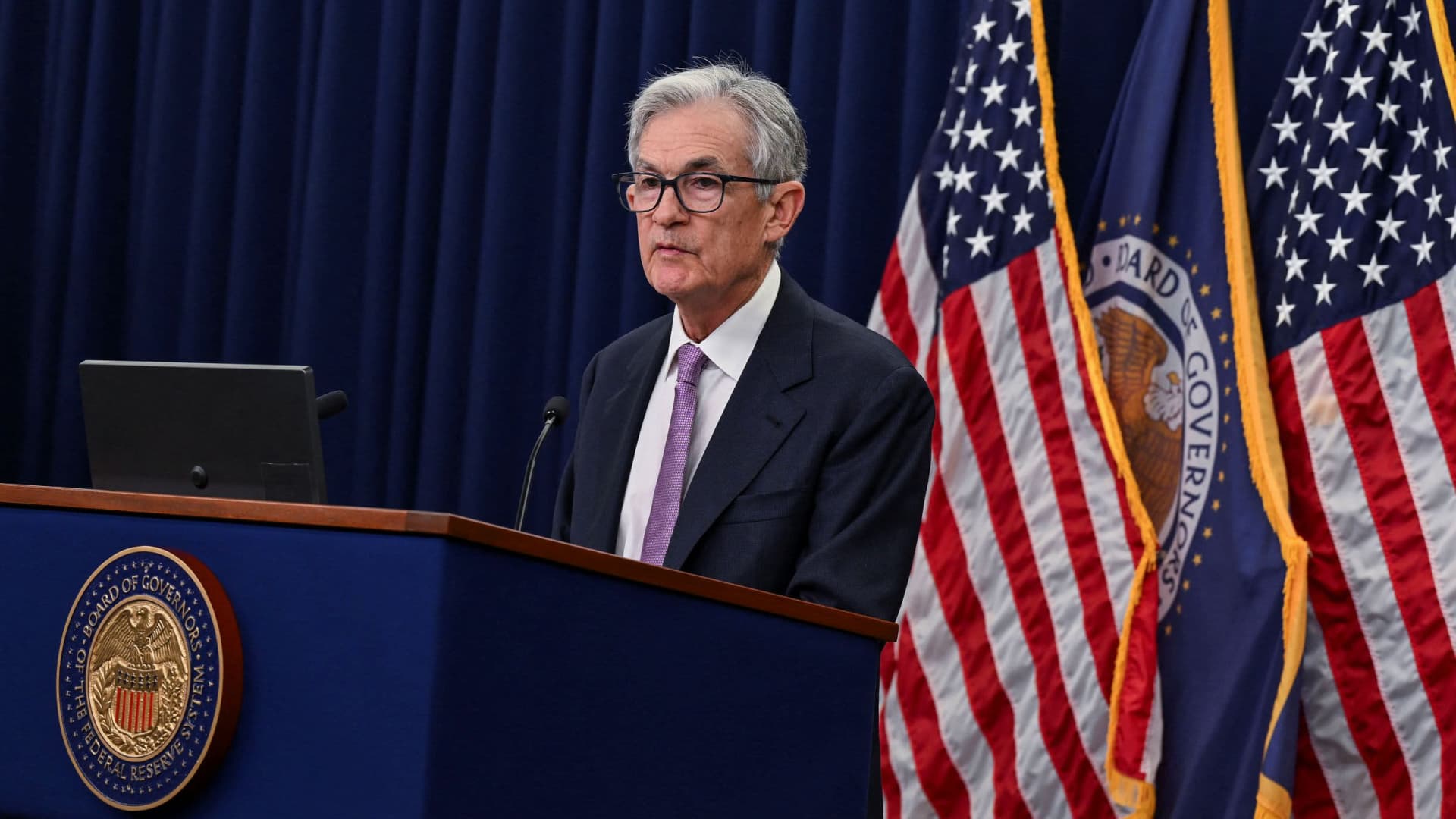Federal Reserve officials expressed confidence that inflation is easing and the labor market is strong, allowing for further interest rate cuts albeit at a gradual pace, according to minutes from the November meeting released Tuesday.
The meeting summary contained multiple statements indicating that officials are comfortable with the pace of inflation, even though by most measures it remains above the Fed’s 2% goal.
With that in mind, and with conviction that the jobs picture is still fairly solid, Federal Open Market Committee members indicated that further rate cuts likely will happen, though they did not specify when and to what degree.
“In discussing the outlook for monetary policy, participants anticipated that if the data came in about
as expected, with inflation continuing to move down sustainably to 2 percent and the economy
remaining near maximum employment, it would likely be appropriate to move gradually toward a more neutral stance of policy over time,” the minutes said.
The FOMC voted unanimously at the meeting to take down its benchmark borrowing rate by a quarter percentage point to a target range of 4.5%-4.75%. Markets expect the Fed could cut again in December, though conviction has waned among concerns that President-elect Donald Trump‘s plans for tariffs could stoke inflation higher.
The meeting concluded two days after the contentious presidential election campaign resulted in the Republican emerging as the victor and set to begin serving his second term in January.
There was no mention of the election in the minutes, save for a staff notation that stock market volatility rose before the Nov. 5 results and fell after. There also was no discussion of the implications of fiscal policy, despite anticipation that Trump’s plans, which also include lower taxes and aggressive deregulation, could have substantial economic impacts.
However, members did note a general level of uncertainty about how conditions are evolving. In addition, they expressed uncertainty over where the rate cuts would need to stop before the Fed hit a “neutral” interest rate that neither boosts nor restrains growth.
“Many participants observed that uncertainties concerning the level of the neutral rate of interest complicated the assessment of the degree of restrictiveness of monetary policy and, in their view, made it appropriate to reduce policy restraint gradually,” the minutes said.
Conflicting signals on inflation and the uncertainty over Trump’s policies have caused traders to scale back their outlook for interest rate cuts ahead. The market-implied probability of a rate trim in December has drifted below 60%, with an expectation of just three-quarters of a percentage point in reductions through the end of the 2025.
Committee members appeared to spend much of the meeting talking about progress on inflation and a generally stable economic outlook.
Policymakers in recent days have expressed confidence that current inflation readings are being boosted by shelter cost increases that are expected to slow as the pace of rent rises eases and makes its way through the data.
“Almost all participants judged that, though month-to-month movements would remain volatile, incoming data generally remained consistent with inflation returning sustainably to 2 percent,” the document said.
“Participants cited various factors likely to put continuing downward pressure on inflation, including waning business pricing power, the Committee’s still-restrictive monetary policy stance, and well-anchored longer-term inflation expectations,” it added.
Policymakers had been expressing concern about the labor market. Nonfarm payrolls rose only 12,000 in October, though the meager gain has been attributed primarily to storms in the Southeast and labor strikes.
Officials indicated that the state of the labor market is generally solid.
“Participants generally noted … that there was no sign of rapid deterioration in labor market conditions, with layoffs remaining low,” the minutes said.

 Blog Post1 week ago
Blog Post1 week ago
 Economics1 week ago
Economics1 week ago
 Finance1 week ago
Finance1 week ago
 Personal Finance1 week ago
Personal Finance1 week ago
 Accounting1 week ago
Accounting1 week ago
 Economics1 week ago
Economics1 week ago
 Personal Finance7 days ago
Personal Finance7 days ago
 Personal Finance1 week ago
Personal Finance1 week ago










